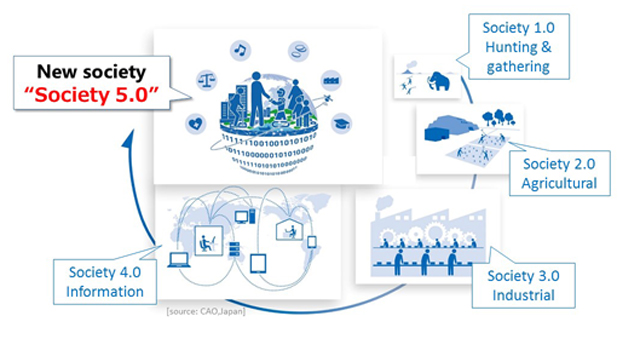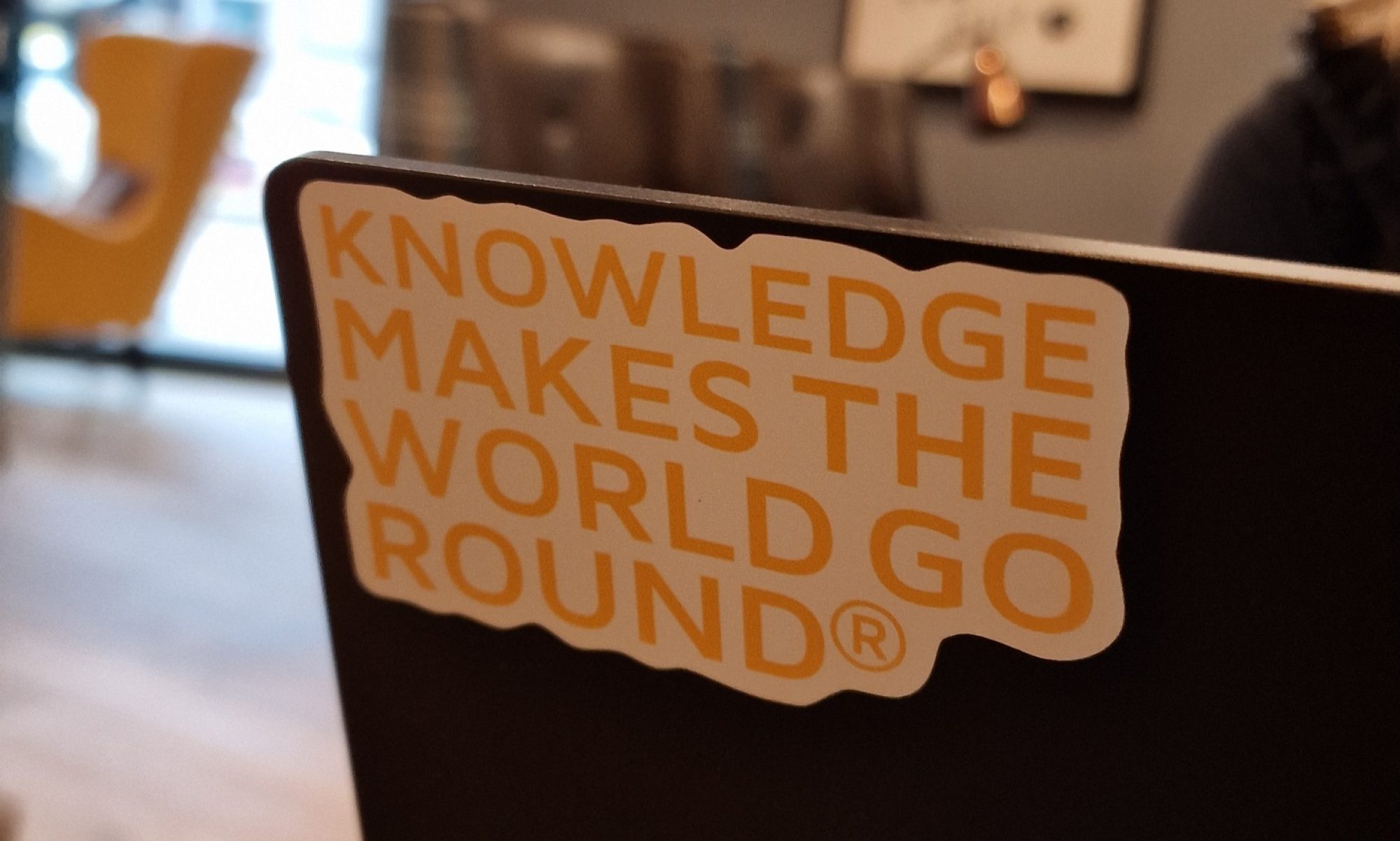
Wir haben uns an die verschiedenen Beschreibungen industriellen Fortschritts gewöhnt, indem wir beispielsweise von Industry 4.0, oder jetzt auch Industry 5.0 sprechen. Was ist darunter zu verstehen?
“Industry 5.0 recognises the power of industry to achieve societal goals beyond jobs and growth to become a resilient provider of prosperity by making production respect the boundaries of our planet and placing the well-being of the industry worker at the centre of the production process” (Breque et al., 2021:14, zitiert in Nielsen & Brix 2023).
Es wird deutlich, dass hier ein menschenzentrierter Ansatz zu erkennen ist, der allerdings auf den Industriearbeiter fokussiert ist. Erweiternd hat sich ein Gedanke etabliert, der schon vor einigen Jahren in Japan mit dem Begriff Society 5.0 beschrieben wurde, und in der Zwischenzeit auch in Europa Beachtung findet.
“By comparison, Society 5.0 is “A human-centred society that balances economic advancement with the resolution of social problems by a system that highly integrates cyberspace and physical space” (Japan Cabinet Office, 2016, zitiert in Nielsen & Brix 2023).
Auch hier geht es um einen menschenzentrierten Ansatz, der allerdings nicht auf den Industriearbeiter begrenzt ist, sondern alle Bürger generell mitnehmen will. Dabei sollen die konkreten Probleme der Menschen (endlich) gelöst werden, wobei die neuen Technologien eine große Bedeutung haben. Innovationen müssen letztendlich in diesem Zusammenhang auf soziale und gesellschaftliche Innovationen erweitert werden.
Nielsen und Brix (2023) beschreiben diese Zusammenhänge ausführlich und stellen ein entsprechendes Modell vor, das im Raum Aalborg (Dänemark) auch schon erfolgreich umgesetzt wurde. Interessant dabei ist, dass beide Autoren vorschlagen, den Weg zu einer Society 5.0 nicht Top-Down – also nur von den politischen EU-Gremien aus -sondern von “unten” – also von den Bürgern aus – anzugehen. Daher nennen Nielsen und Brix dieses Vorgehensweise auch “bottom-up ‘society transition model’”.
Ich mag diesen Bottom-Up-Gedanken sehr, da es mit den Überlegungen von Eric von Hippel (Democratizing Innovation, Free Innovation) und den vielfältigen Open Source Initiativen zusammenpasst.

Copyright © 2024. All Rights Reserved.

Dear Robert, thank you for your article and interest in INDUSTRY 5.0. My name is Michael Rada, I am the Founder of INDUSTRY 5.0 implementing its principles in companies and businesses since 2013, leading a global network in 119 countries, a maritime ecosystem, and outer space.
INDUSTRY 5.0 was launched on December 1, 2015, before SOCIETY 5.0 was introduced in Japan. I am not sure if noticed, but in December 2023 acknowledged the Japanese government for the first time the concept of society 5.0 failed, and they started to aim INDUSTRY 5.0 instead.
Let me share with you the introduction of INDUSTRY 5. published by the AMERICAN NATIONAL STANDARDS INSTITUTE https://blog.ansi.org/industry-5-0-from-virtual-to-physical/ and chapter published by SPRINGER NATURE https://link.springer.com/chapter/10.1007/978-3-658-43586-8_27 If any questions feel free to ask